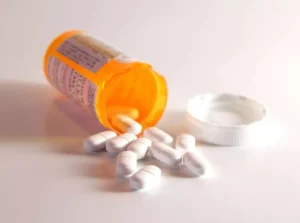
Furthermore, in many of these reports, comorbid conditions, especially myocarditis and other addictions such as cocaine and nicotine, were not reported. Ballester specifically analysed the effects of alcohol withdrawal on the myocardium using antimyosin antibodies labelled with Indium-11172. This radiotracer has been acknowledged as an indicator of irreversible myocardial damage.
1. The Natural Course of ACM
The present review aims to describe the clinical features of alcoholic cardiomyopathy, particularly emphasizing on the areas of uncertainty of this under-recognized disease (Table 1). After a person with AUD completes a rehab program, they may need aftercare support. Many treatment programs offer ongoing support groups alcoholic cardiomyopathy symptoms that continue to meet and provide peer support or recommend attending community support groups like Alcoholics Anonymous (AA).

Enhancing Healthcare Team Outcomes
- This activity describes the pathophysiology of ACM, its causes, presentation and the role of the interprofessional team in its management.ACM is characterized by increased left ventricular mass, dilatation of the left ventricle, and heart failure (both systolic and diastolic).
- We do not receive any commission or fee that is dependent upon which treatment provider a caller chooses.
- He recruited 48 patients admitted to hospital with cardiomegaly without a clear aetiology and severe alcoholism.
Along with signs of heart failure such as increased N-terminal pro-B-type natriuretic peptide, blood tests can provide hints suggesting chronic alcohol abuse. Thus the cardiomyopathy that develops following chronic alcohol consumption appears to be multifactorial in origin. Therefore, complete abstinence from ethanol is the most useful measure to control the natural course of ACM 51,56,135. In fact, patients with ACM who abstain from alcohol have a better long-term prognosis than subjects with idiopathic dilated CMP 54.
- Moreover, myofibrils showed a progressively distorted structure, resulting in a homogeneous mass.
- Alternatively, studies have analysed its effect by combining ethanol with cyanamide.
- Thus the cardiomyopathy that develops following chronic alcohol consumption appears to be multifactorial in origin.
- The risk of developing alcoholic cardiomyopathy appears to be related to both the amount and duration alcohol intake.
2. Is ethanol the Real Cause of ACM

Because of this, their origin could be multifactorial and linked both to the alcohol molecule and to its main metabolite, acetaldehyde. In fact, Brandt et al.54 observed that in ALDH2-deficient mice, the most important increase in mitochondrial superoxide levels (which is the major species of ROS) is due to acetaldehyde, not ethanol. By inhibiting NOX2 (the most important superoxide-producing enzyme) with apocynin, they observed a decrease in ethanol- and acetaldehyde-induced superoxide levels. The key to diagnosis is a personal history of chronic heavy alcohol use and the absence of other etiologies. However, several pitfalls in the pathophysiology, natural history, diagnosis and risk stratification of this disease still exist.

2. Ethanol-induced Myocyte Apoptosis and Autophagy
Besides, newer and better targeted therapies are required to be developed which will act on pathways involved in the loss of myocytes (apoptosis and necrosis) and cardiac fibrosis. The natural course of ACM is mainly related to the degree of persistence in alcohol consumption and the individual biological adaptive response 2,20,41,56,81. Ethanol abstinence allows for recovery in the majority of cases, including in those with previous severe depression of LV EF 81,88,135.

Extrahepatic Manifestations in Alcoholic Liver Disease
- DCM, dilated cardiomyopathy; HF, heart failure; HFrEF, heart failure with reduced ejection fraction; HTx, heart transplant; LVEDD, left ventricular end-diastolic diameter; LVEF, left ventricular ejection fraction; SD, standard deviation.
- The beneficial heart wine as universal remedy in medieval ages by Hildegard von Bingen 11 found its later correlates in many observations at the beginning of modern medicine when coronary artery disease (CAD) and its risk factors and symptoms received more attention.
- Ethanol-induced disruption of ribosomal protein synthesis also contributes to non-contractile protein depletion 104.
- Although these reports were isolated, the routine use of propranolol and subsequently all β-blockers were considered relatively contraindicated in treating cocaine-induced cardiovascular emergencies.
- Two decades ago, the treatment of cocaine-induced cardiovascular effects favored the use of β-blockers, especially propranolol.
The relationship of alcohol with heart disease or dementia is complicated by the fact that moderate alcohol consumption was shown not only to be detrimental but to a certain degree also protective against cardiovascular disease 14 or to cognitive function in predementia. The first clinical recognition of ACM was performed by Hippocrates in Greece during the 4th century B.C. However, its modern clinical report was delayed until the 19th century, where specific ACM cases were clinically described in Germany and England 1. During the 20th century, the physiopathological basis for ACM was progressively established 6. At present, ACM is defined as a dilated cardiomyopathy of toxic origin with low left-ventricle ejection fraction, chamber dilatation, and progression to congestive heart failure 18,52,53.
- It’s important to be honest with your doctor about the extent of your alcohol use, including the number and amount of drinks you have each day.
- The use of carvedilol, trimetazidine with other conventional heart failure drugs have been proven to be beneficial in some studies.
- Palpitations and syncopal episodes can occur due to tachyarrhythmias seen in alcoholic cardiomyopathy.
- Around 40–80% of people with ACM who continue drinking alcohol die within 10 years of their diagnosis.
This influences the maintenance of cardiac geometry and contractile function, increasing the development of ACM 121. In ACM, protein degradation with sarcomere disarray and contractile protein loss has been suggested to be a key point of autophagy induction 18. Different pathogenic hypotheses have been suggested, such as the pivotal role of acetaldehyde 122, the role of oxidative stress and stress signaling cascades 109, and the translocation of NFkB into the nucleus 106.